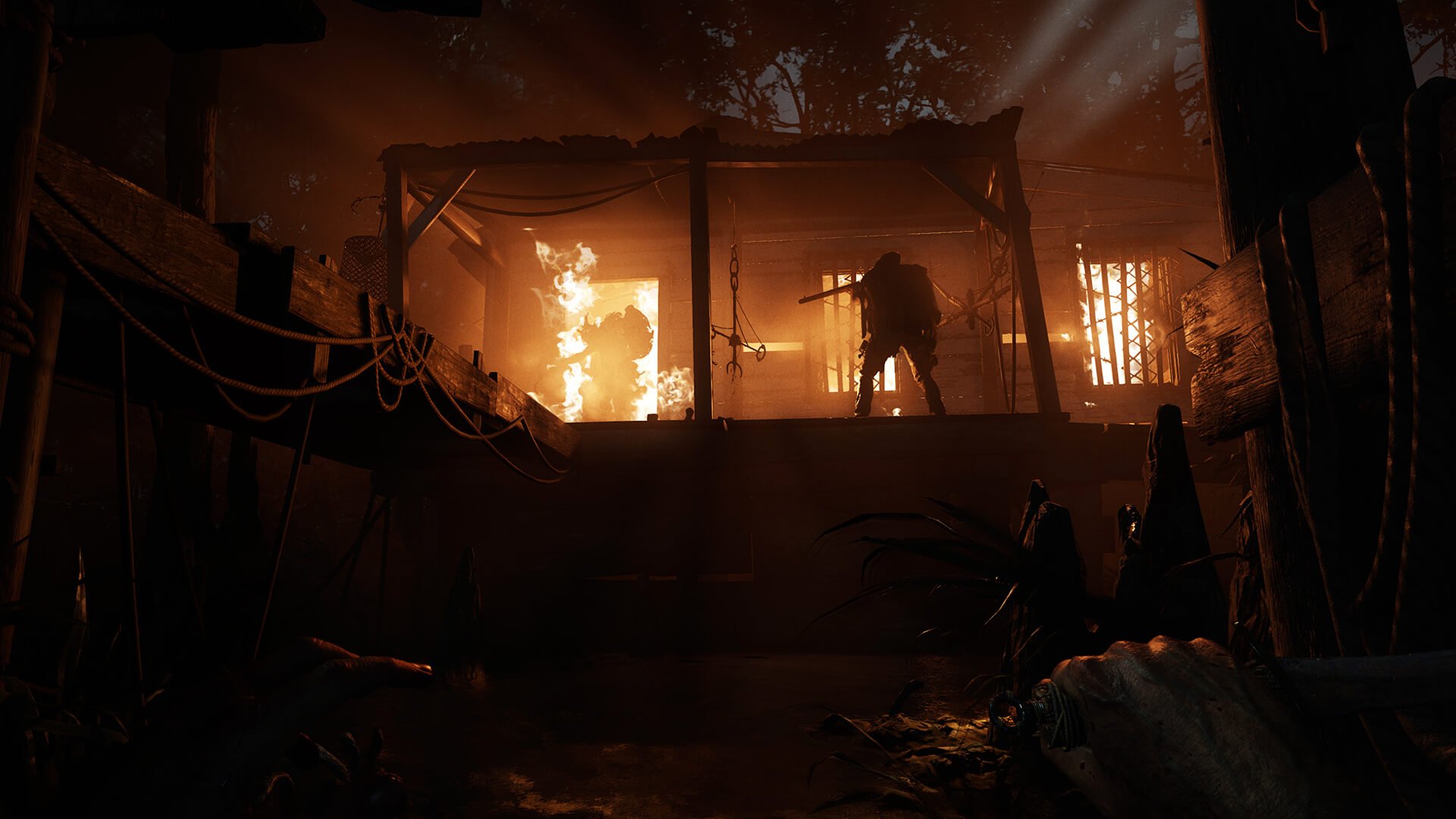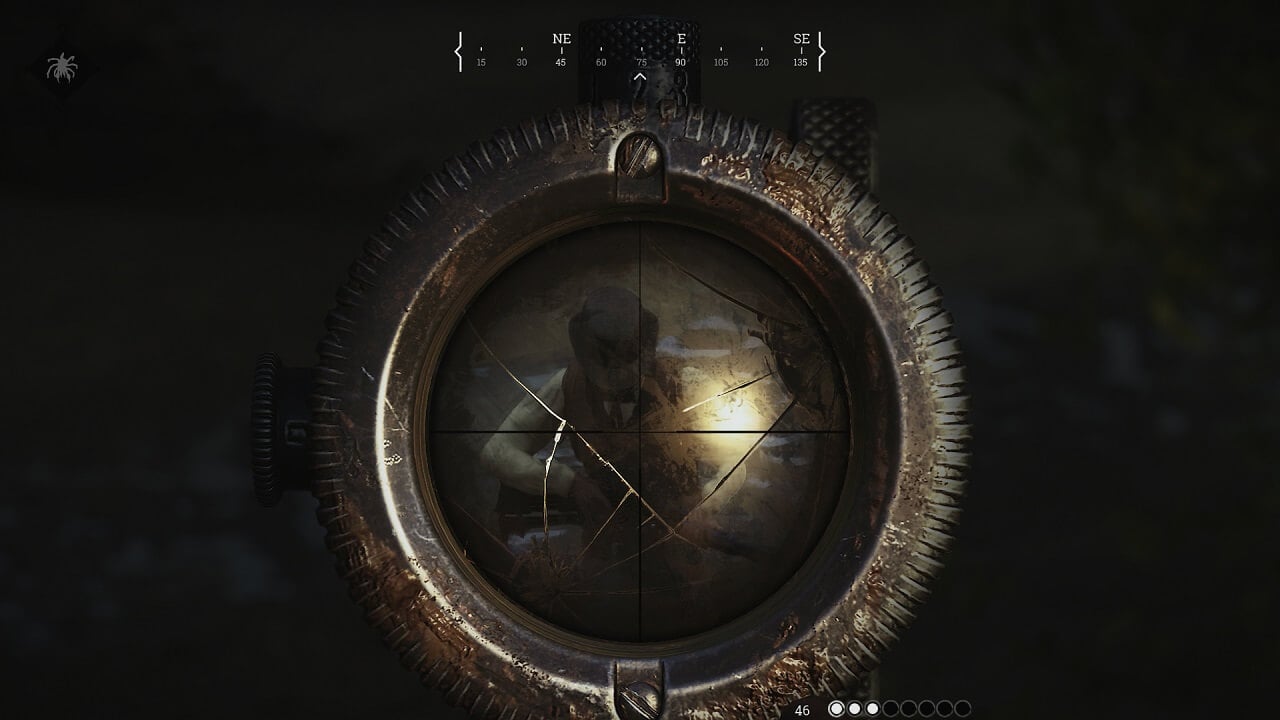Title: Hunt: Showdown
Available On: PC
Publisher: Crytek
Developer: Crytek
Genre: Competitive Shooter
Official Site: Hunt: Showdown
Release Date: Feb 22, 2018 (Early Access)
Where To Buy It: Steam – $29.99
When Hunt: Showdown clicks, it really clicks. Creeping through an eerie, overgrown jungle, surrounded by monsters and other hunters, listening for every distant sound and trying to figure out just where they are coming from… it’s a pretty impressive game in those moments.
Unfortunately, it doesn’t always click. And it seems like it might be tough for it to recover.
Hunt: Showdown has a lot of different genres mashed together under its hood. A few teams of two (you can also play solo, but it becomes much, much more difficult. Two person teams are a practical necessity) hit a swampy map, with the ultimate goal of killing a boss monster. To locate that boss monster, the players will need to fight through AI controlled monsters to find clues, which will narrow down the location of the boss on their map. After tracking down the boss and killing it, the hunters need to banish it back to hell, then escape to the edge of the map with the collected trophy.
Sounds simple, right?
Well, don’t forget that there are other teams also wandering the map. And it doesn’t matter who kills the boss, or banishes it, only who escapes with the trophy. So players can find plenty of success letting someone else do the dirty work before sweeping in and stealing all the glory (and experience). Your teammate can heal you a few times if you are taken to zero health, but if both of you go down before the other is healed, it’s back to the title screen for you. All said, when everything comes together in Hunt: Showdown, it makes for some intense, white-knuckle gaming that few things in my collection have matched.
Again, that doesn’t always happen, unfortunately. It hasn’t moved along a ton since the closed alpha, and that’s starting to become worrisome.
Let’s start with where Hunt: Showdown excels. It looks and sounds incredible. The screenshots definitely do it justice, and it looks even better in motion. Animation is great, monsters move in frighteningly uncomfortable ways, fire and water all looks good. Essentially, if you splurged on a solid GPU, this is a game that’s going to reward you for it. There’s a few wonky bits here and there, but it gets a pass for still being an Early Access game. The aesthetic is also great, all creepy 1800s Louisiana. It serves the atmosphere very well.
Similarly, Hunt: Showdown sounds really good. It’s a game that practically requires a decent set of headphones if you want to succeed. Noise (or lack thereof) plays a huge role in identifying where your prey is, what they are doing, and if you can get the drop on them. And between a two team skirmish, the element of surprise is without a doubt one of the biggest advantages. Especially as you start gaining access to better guns and perks, getting a clean shot before the other team notices you will often end a fight before it even truly begins.
With that, let’s talk a bit how progression works in Hunt: Showdown. You start with a handful of money that you use to hire hunters. Every hunter starts with some different amounts of health, perks, and equipment. If a hunter makes it out of a mission, whether or not the mission was a “success,” they will gain some experience and can be used on another mission. Experience will let you improve that hunter’s abilities, add a bit of health to their max, or buy them some fancy new guns. That means, sometimes, it can be advantageous to hoof it to an extraction point even if you haven’t found the target yet. Live to fight another day and all that. If your hunter dies while on the mission, they are gone and you will have to hire another one, starting back from scratch and dipping into your cash reserves.
In addition to each individual hunter’s experience, you also have your “bloodline” rating. This is experience for your account, and it increases every time a mission ends, even if you die in the first few minutes. Every time your bloodline level increases, it unlocks a new item that you can outfit characters with: guns, grenades, perks, etc. The higher your bloodline, the more options you have when outfitting your hunters. The higher your hunter levels, the more effective they will be during a mission.
So, it looks good. It sounds good. It plays well. And the progression system allows you to really sink your teeth into things and adds a powerful risk/reward system. Why am I so hesitant to completely recommend Hunt: Showdown?
For one: it’s Early Access. Big time Early Access. The game is not optimized at all, it’s buggy as hell, matches take FOREVER to load: literally, over three minutes once all the players have been found, and that’s sitting on a loading screen. And that’s if you can find players – sadly, Hunt: Showdown has not taken off like other multiplayer only titles, and hasn’t been on Steam’s top 100 in days. Even though there’s generally only 10 players in a match, there just aren’t that many people playing it. A lack of tutorial, zero single player content, and a low player base is not very welcoming for new players, so it’s entirely possible that anyone who tries to pick this one up without some serious overhauling from Crytek will bounce right off and try to find something a little more forgiving.
Even though it’s still very early in Hunt: Showdown‘s life cycle, all the negatives point towards trouble. Multiplayer only games that do not find an immediate audience often have trouble staying afloat; because of this, despite all of the positives Hunt: Showdown has to offer, it is tough to recommend at this point in time. If the player count starts to increase, or if you can find a few friends to queue up with consistently, it can definitely be worth your while to skulk through Hunt: Showdown‘s creepy bayou. The problem is, if you wait for it to hit those landmarks, it may get lost in the marsh.











